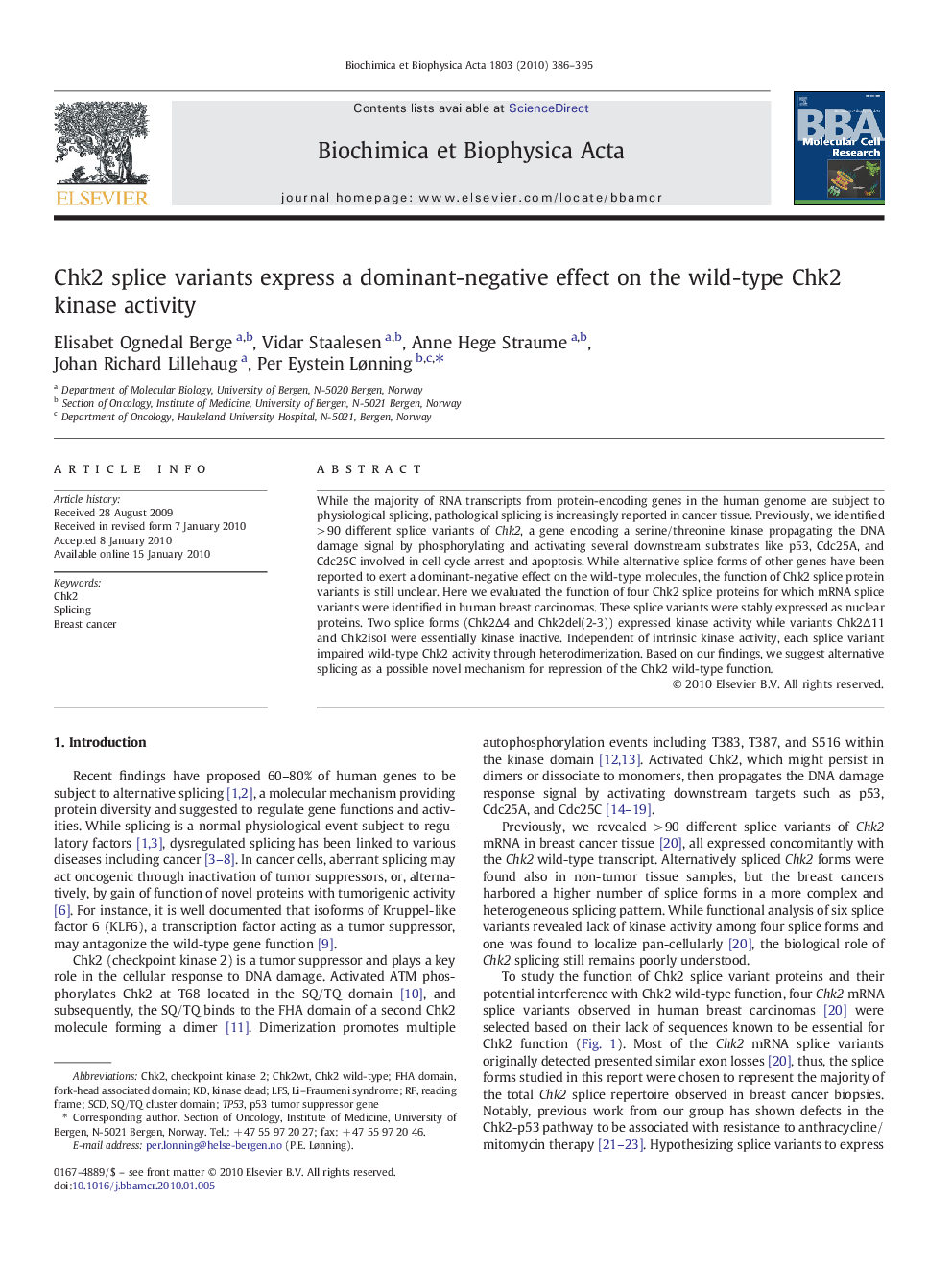| Article ID | Journal | Published Year | Pages | File Type |
|---|---|---|---|---|
| 10802925 | Biochimica et Biophysica Acta (BBA) - Molecular Cell Research | 2010 | 10 Pages |
Abstract
While the majority of RNA transcripts from protein-encoding genes in the human genome are subject to physiological splicing, pathological splicing is increasingly reported in cancer tissue. Previously, we identified >Â 90 different splice variants of Chk2, a gene encoding a serine/threonine kinase propagating the DNA damage signal by phosphorylating and activating several downstream substrates like p53, Cdc25A, and Cdc25C involved in cell cycle arrest and apoptosis. While alternative splice forms of other genes have been reported to exert a dominant-negative effect on the wild-type molecules, the function of Chk2 splice protein variants is still unclear. Here we evaluated the function of four Chk2 splice proteins for which mRNA splice variants were identified in human breast carcinomas. These splice variants were stably expressed as nuclear proteins. Two splice forms (Chk2Î4 and Chk2del(2-3)) expressed kinase activity while variants Chk2Î11 and Chk2isoI were essentially kinase inactive. Independent of intrinsic kinase activity, each splice variant impaired wild-type Chk2 activity through heterodimerization. Based on our findings, we suggest alternative splicing as a possible novel mechanism for repression of the Chk2 wild-type function.
Keywords
Related Topics
Life Sciences
Biochemistry, Genetics and Molecular Biology
Biochemistry
Authors
Elisabet Ognedal Berge, Vidar Staalesen, Anne Hege Straume, Johan Richard Lillehaug, Per Eystein Lønning,
